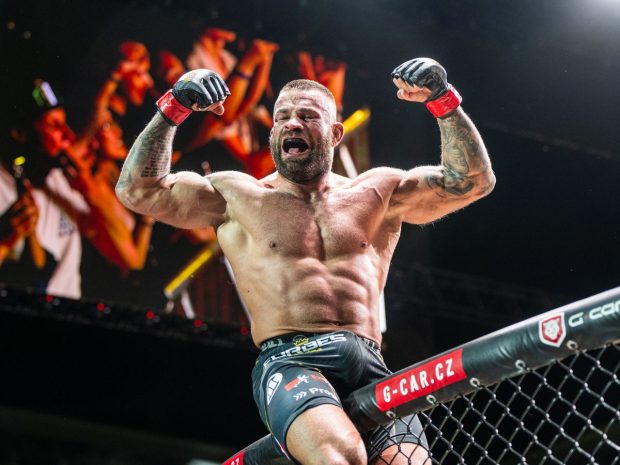Before Xabi Alonso and after Xabi Alonso are distinct periods. For Bayer Leverkusen, but perhaps even for German football more broadly.
Leverkusen first, because it’s simpler.
The magnitude of what Alonso accomplished speaks for itself. Prior to 2024, Leverkusen had never been German champions in their 120-year history, either before the Bundesliga era started or after it began in 1963. To complete an unbeaten domestic double was not just unprecedented for the club, but also a feat unmatched by any team in German football history.
Advertisement
And Alonso was one game away from winning a European trophy, too, which would have installed him and his players in the sport’s pantheon. Atalanta and Ademola Lookman ultimately put paid to that, but Alonso’s influence remains inarguably profound.
In the first instance, because the group of players he inherited were only theoretically capable of what they accomplished. Leverkusen have long been a club that has recruited well and sent players to the highest level of the game, but signing talented players is only part of that process. Showing that they can perform at the highest level and thereby making them desirable to Europe’s richest clubs is more difficult.
And that is where Alonso has been so successful: in using players in a way that shows them at their very best.
With some, it must seem easy. Florian Wirtz is, for instance, the kind of rare talent that appeared predestined for success. But when Alonso arrived, Wirtz was still only 19 and just a few months into his recovery from a serious knee injury.
There is no question that he was already a very good player prior to 2022. He averaged a goal involvement every 109 Bundesliga minutes the season before.
Nevertheless, the creation of a position for Wirtz which allowed him to flourish and the assembly of players around him who could amplify his effect — either by supplying possession (Granit Xhaka), giving him width and angles to exploit (Jeremie Frimpong, Alex Grimaldo), or being a more general part of the supporting chorus (all sorts of others) — turned an outstanding talent into an outstanding player.

Alonso helped Wirtz to flourish (Kirill Kudryavtsev/AFP via Getty Images)
Many of the players at the club are now spoken of in different ways; half a dozen of them have played the best football of their careers under Alonso.
Frimpong has done so, unquestionably, and in a 2024 interview with The Athletic he described the quality of Alonso’s one-on-one communication. “Everybody understands him. When he has an idea, he can make it make sense to all the players. I always feel like he knows how to use my abilities.”
Advertisement
Applied across the squad, it’s easy to see a pattern. Alonso understood how best to focus Grimaldo’s attacking and creative instincts. He knew how to help Jonathan Tah recover his status as an international-calibre centre-half. This season, despite serious injury blighting his mid-twenties, Patrik Schick has re-emerged as a prolific goalscorer.
The careers of Nathan Tella, Piero Hincapie and Edmond Tapsoba have all advanced too and they will all leave the club for much more than they originally cost.

Schick has scored 19 goals in the Bundesliga so far this season (Pau Barrena/Getty Images)
Part of Alonso’s effect is literal: it’s the dividend of those future sales. Another measurable, though, perhaps one which is more important, is how he has helped develop Leverkusen’s prospectus for the future.
Teams in their part of the transfer market behave as waystations on the road to the summit. Naturally, there are all sorts of clubs jostling for position in that profitable area. In different eras, talent identification was their battleground. Find the best players and sell them.
Now, with data usage having been largely democratised, teams compete more broadly — over who has the best facilities and which of them can offer a talented player the easiest, surest path to the elite level and on to wealth and superstardom.
Even just within Germany, Leverkusen compete with Eintracht Frankfurt, RB Leipzig and Borussia Dortmund on that basis, and it’s easy to lose footing after a few fallow years. Dortmund, for instance, are no longer attracting the very best players from the next generation. Instead, having seen — among others — Dani Olmo, Josko Gvardiol and Dominik Szoboszlai mature in Leipzig, and Randal Kolo Muani and Omar Marmoush accelerate in Frankfurt, tomorrow’s stars (and their parents and agents) have more faith in those clubs to lead players through their development phase.
Consider Alonso’s work, which will yield moves for maybe six or even players, in the style of a 1950s holiday brochure: Come to Leverkusen, for titles, Champions League participation and the chance to become a much better player.

Alonso lifts Frimpong, as he has done with several Leverkusen players (Ina Fassbender/AFP via Getty Images)
Of course, Alonso is weakening that pitch by leaving, but he does so having ensured that Leverkusen remain a premier destination within their category. Maybe they have never been more attractive. Alonso has shown that you can prepare for life at the very top of the game by actually winning trophies and achieving extraordinary feats.
Advertisement
Perhaps he also leaves having helped to make a more subtle point.
Often, German football clubs respond to crisis with what they know. It’s the same kind of thinking that many Premier League clubs employed 10, or 20 years ago, when coaching searches would often privilege league-specific experience, or intangible know-how. It was a vote for short-term stability rather than aspiration.
That mentality still resides in Germany and it has sustained the career of plenty of coaches who have held positions across the Bundesliga, sometimes more than once in the same place. Not without reason. The 2.Bundesliga is currently home to many big clubs that have fallen on hard times: Schalke, Kaiserslautern, Nuremberg, Fortuna Dusseldorf. Hamburg have only just been promoted after seven years away.
A lot of decisions are driven by fear. When things start to go badly at a club, as they were during the autumn of 2022 at Leverkusen, the temptation is to avoid the worst-case scenario, rather than chase the best outcome. “It’s easy to see them becoming the next HSV or Schalke,” as the refrain goes — the next lost cause.
Famously, Leverkusen were in the relegation zone when Alonso was appointed.
It was a false position in the sense that the squad assembled was badly underperforming and seemed likely to recover. They had finished third the season before. Nevertheless, the risk that Simon Rolfes (CEO for Sport) and Fernando Carro (CEO) took was substantial: Alonso was a coach with no prior senior experience and who had no history in Leverkusen. It’s easy to view it now as a logical risk. But had that hiring gone badly, it would have been difficult for Rolfes and Carro to defend.

Alonso and Leverkusen fans rejoice after winning the 2023-24 Bundesliga (Sascha Schuermann/AFP via Getty Images)
Appointing Alonso was bold and atypical of the German footballing environment.
Leverkusen are a more international club than many in the Bundesliga. They have a long history of successful players from outside Europe. Alonso was replacing Gerardo Seoane, the Swiss coach now in charge at Borussia Monchengladbach. Before him, Peter Bosz, the Dutchman, had been coach for three years.
Advertisement
So, they are not quite as dependent on the carousel of veteran German coaches as other clubs, but there are plenty of teams who, on finding themselves in that position, would have placed a call to a safe pair of hands, or an interim that nobody really objected to.
Leverkusen did not. They made a bold, optimistic decision for something different. The reward was the most successful period in their history and an example that, in time, might embolden other clubs to challenge the orthodox thinking.
The Bundesliga was better when Alonso was part of it. His parting gift might be to broaden some of its horizons, too, and that legacy would extend well beyond his departure.
(Top photo: Thomas Kienzle/AFP via Getty Images)
This news was originally published on this post .








Be the first to leave a comment